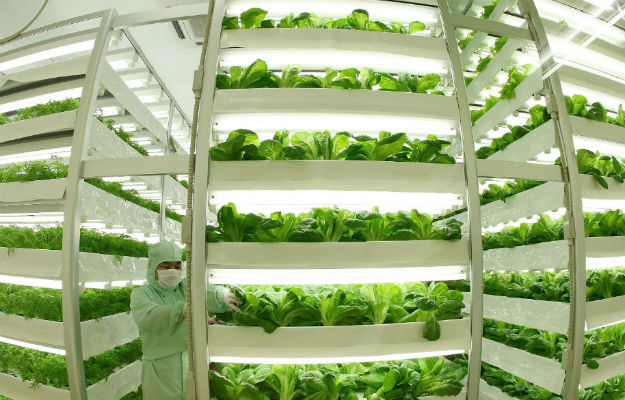Jobs of the Future
Foreign Policy |
 Image: Stephen Brashear/Getty Images
Image: Stephen Brashear/Getty Images
By Aaron Smith and Parag Khanna
As technology shifts the workforce, some surprisingly traditional jobs are on the chopping block. Two words: medical robotics.
In 1945, when more than 15,000 Manhattan elevator operators and maintenance workers went on strike, New York's skyline simply shut down. Business ground to a halt for a full workweek, causing Mayor Fiorello LaGuardia to desperately appeal for the strikers to return to work. Today, of course, the elevator operator is another casualty of automation, along with the likes of the professional typist and the switchboard operator. But though fears of a robot army displacing hordes of human laborers have so far proved premature, today's global workforce is at a moment of major upheaval (even putting aside widespread unemployment). We're still not quite at Ray Kurzweil's "singularity" -- the move to a world where humans are more integrated with digital and automated technologies -- but get ready: Many jobs we now take for granted will soon disappear, while others will emerge that are simply unimaginable today. Here's a look at five jobs that may be on the chopping block and what might replace them:
(1) Market researcher —> Predictive data analyst
Every minute YouTube users upload 48 hours of video, Facebook users share 684,478 pieces of content, and Google receives 2 million search queries, according to the business analytics company Domo. As Big Data gets even bigger, fewer people will be needed to collect information, and more people will be needed to analyze and discover the value stored within these billions of terabytes. Some of the sexiest and best-paying jobs of the next 10 years will belong to the likes of Internet statisticians and data miners, people who don't just crunch raw numbers but analyze their hidden patterns to shape business decisions.
Visionary: Andrew Pole, statistician for Target and leading practitioner of consumer behavior prediction.
(2) Hospital orderly —> Medical roboticist
In this summer's sci-fi blockbuster Prometheus, an astronaut climbs into a fully robotic surgical pod to have an alien baby removed by cesarean section. Although extraterrestrial cross-breeding is a ways off (let's hope), advanced medical robots are rapidly evolving to keep up with an aging global population. Japan leads the way in robot innovation to care for its growing elderly population, including rehabilitative and therapeutic robots from Honda and Toyota. Medical roboticists will be needed to design, build, and operate these intelligent devices, which will increasingly replace humans -- and provide more precise care -- in doctors' offices and hospitals.
Visionary: Catherine Mohr, director of medical research at Intuitive Surgical, which develops cutting-edge surgical robots and procedures.
(3) Teaching assistant —> Educational technologist
While public university systems in many countries are plagued by inadequate funding, higher education as a whole is one of the fastest-growing sectors: 170 million people were enrolled in higher ed in 2009, a 160 percent increase from 1990. And online education, once derided as correspondence classes for those who couldn't get into a four-year college, is booming. Software coders and curriculum developers will be needed to design online courses that deliver memorable learning in a new virtual medium. On the heels of Udacity and MIT's OpenCourseWare, new educational platforms have emerged that require the virtual curation of online, collaborative student groups, facilitating a multidirectional learning process. Rejoice! The days of tweed-jacketed professors droning on in lecture halls are nearly over.
Visionary: Salman Khan, founder of the popular, free online education platform Khan Academy, which features more than 3,000 videos teaching everything from basic algebra to the French Revolution.
(4) Construction foreman —> Smart engineer
Bricks and mortar aren't what they used to be. Construction represents more than $7 trillion of the world's economic output, and it's expected to grow to $12 trillion by 2020, as emerging markets bulge in China, India, Latin America, and the Middle East. And new transportation systems -- from driverless cars to maglev trains -- require infrastructure to be updated and reinvented. In developed countries, creaking urban centers will be retrofitted -- or replaced -- with new, sustainable technologies and materials. And with the development of "smart houses," already in the works from Microsoft, new types of engineers, designers, and construction workers will be needed to seamlessly integrate and install digital technology in our homes.
Visionary: Sebastian Thrun, who led development of the Google self-driving car.
(5) Tour guide —> Space navigator
There's almost nowhere you can't get to by plane or boat these days. And with a flourishing private space race, a ride above Earth's atmosphere soon won't be solely for astronauts (or the ridiculously rich). The U.S. Federal Aviation Administration predicts space tourism will be a billion-dollar industry within the next 10 years. Virgin Galactic has more than 500 reservations for suborbital flights, slated to launch as soon as next year. And the space venture company Bigelow Aerospace plans to open a space hotel in 2016. It may sound like something out of an Isaac Asimov novel, but if there's one thing we know about the future of the workforce, it's that wherever professionals and technologists are going, sci-fi writers have already been.
Visionary: Richard Branson, founder of Virgin Galactic, poised to be the first suborbital space tourism company.